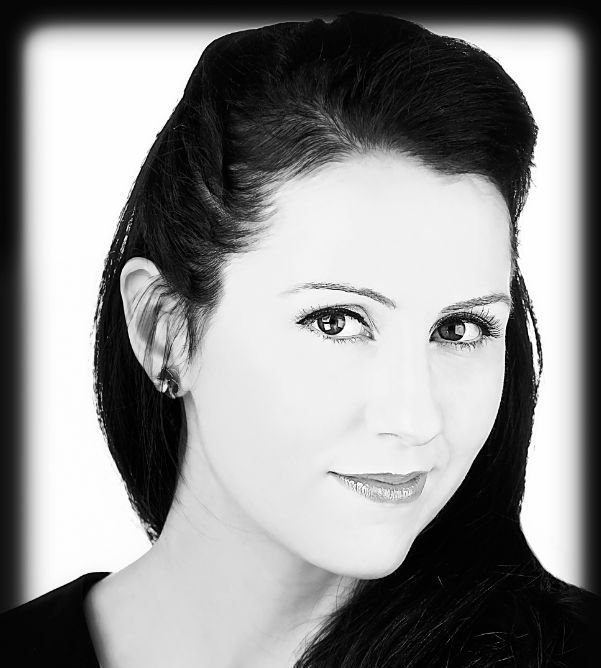

This interview with Emily Bennington is the heels of the review here. Before posting the final edit of the interview I notice there were several inspirational quotes. Bennington’s employment experience and perspective offers women inspiration to take careful stock of her career path and focus on being great to achieve greatness. I hope you are inspired after reading as much of this advice is applicable to all job seekers.
1. Did you ever think how different Who Says It’s a Man’s World would have been if it were written in the 1980’s? Why not or how so?
Ha! Great question. Despite the aggressive-sounding title of the book, Who Says It’s a Man’s World is actually about being a magnificent woman first and then building a solid career from that place. So, in that sense the advice is timeless and just as relevant in the 80’s as it is today.
2. Most authors who write career books do not include the worksheets and exercises that you did making your work much more valuable to the reader. What was your thought process to include such practical advice?
Thank you so much. I thought it was important to include these tools because I’m interested in learning that goes beyond just educating – I want readers to actually change habits that aren’t serving them. But in order to do that, there has to be a framework for applying new skills and knowledge.
3. What lessons should job seekers take away from a primarily workplace book?
At the end of the day, Who Says It’s a Man’s World is about discovering WHO you would be if you were working at your best and mindfully taking action each day to reinforce those values. So from that perspective there is no line between “job seekers” and “employed.” It’s about working from your authentic self regardless of what you do. That said, if you are a job seeker and you’ve gone through the process in the book of identifying your virtues (what matters most to you), your intentions (specific behaviors that underscore your virtues), and career goals (what is your general direction), you’re going to come into interviews with a much clearer sense of what you bring to the table and a confidence that’s attractive to potential employers.
4. Are messages like yours reaching new graduates? Why should they be concerned at the beginning?
Many employers are totally enchanted by the enthusiasm and skill set that new grads bring to the table. Still, if there is one challenge I hear over and over again it’s that these same employers sometimes find it difficult to assimilate the energy of new grads into established work teams. There’s a chapter in Who Says that addresses the top three skill gaps surveyed employers cited that are specific to new grad hires and so I think the more students can become aware of these perceptions before they enter the workforce, the more they will be able to address them proactively.
5. What do graduates understand about career value now that more seasoned professionals didn’t understand at the same age range?
I think the author Marianne Williamson summed this up best when she said younger generations know more about things that change while older generations know more about things that don’t change. In other words, young adults may be on the cusp of all that is trendy and innovative, but seasoned professionals deeply understand the importance of core values. Great teams have a mix of both.
6. Do young career women and mature career women value the same career goals, skills, or attributes? If they differ, where in the middle can they meet?
There is a middle ground for everyone and it is this: You must be a magnificent woman first to have a magnificent career. Goals and skills will come and go, but defining the values on which you stand as a professional should be your north star always.
7. Out of the five professional development areas, where do women excel the most, and where do they fall short?
I can’t speak to the areas in which professional women excel or fall short overall because that’s so subjective to each of us as individuals. I will say, however, that I believe this is an unprecedented period in business where many executive teams are taking a very serious look at what their companies stand for beyond just making a profit for shareholders. This is great news for women, of course, because the notion of leadership by nurturing the collective is so central to who we are.
8. Are women in leadership (Directors to Executives) who wrestle with family commitments thinking in terms of being an example to the people they lead?
I certainly hope so. The pressure to be available 24/7 in business today is destructive to families because when you’re on your phone, you can’t truly BE with your spouse and children. If real change is going to come in this area, it has to start with women who draw boundaries for themselves and model that behavior for their teams.
9. Within the survey/study, is there any evidence or pattern showing how professional development is viewed by management? It seems that many employers are leaving career development in general up to the employee.
Professional development is a real grey area in business. Some companies are outstanding at it while others totally suck. The ones that excel have full leadership buy-in and actually put their resources where their mouth is when it comes to “people first.” Still, I strongly believe it’s up to each individual to take charge of your own professional development and fill in any gaps between where you are and where you want to be. No one will ever care about your career more than you do.
10. Occasionally, authors write advice books finding that there were lessons that affected them as much as the reader. Did you have a moment like during or after writing? If so, what was one thing in retrospect that was an “aha moment.”
Actually, my whole definition of success was redefined with this book. When I first started writing, it was all about helping readers get to the corner office. By the end of the process, I figured out that a white-knuckle grip on “goals” was actually a recipe for unhappiness in our careers. This book taught me that real success is about putting the WHO before the WHAT I will forever be grateful for that lesson.
EMILY BENNINGTON is a frequent speaker on the topic of career success and has been featured on Fox Business, CNN, and ABC, and quoted in publications including the Wall Street Journal, New York Post, and Washington Post Express. She is a contributing writer for Monster.com, a featured blogger for The Huffington Post, Forbes Woman, and US News and World Report, and coauthor of Effective Immediately.
About Mark Anthony Dyson
I am the "The Voice of Job Seekers!" I offer compassionate career and job search advice as I hack and re-imagine the job search process. You need to be "the prescription to an employer's job description." You must be solution-oriented and work in positions in companies where you are the remedy. Your job search must be a lifestyle, and your career must be in front of you constantly. You can no longer shed your aspirations at the change seasons. There are strengths you have that need constant use and development. Be sure you sign up to download my E-Book, "421 Modern Job Search Tips 2021!" You can find my career advice and work in media outlets such as Forbes, Inc., Fast Company, Harvard Business Review, Glassdoor, and many other outlets.

 Editor’s note: Brandhyze Stanley is a frugal expert, and knows how to find high-quality clothes at the best prices you’ll see anywhere. Her guest post offers some advice job seekers whose money is too tight to mention. See her bio at the end of her post and highly recommend spending time at her perusing her frugal fashion advice.
Editor’s note: Brandhyze Stanley is a frugal expert, and knows how to find high-quality clothes at the best prices you’ll see anywhere. Her guest post offers some advice job seekers whose money is too tight to mention. See her bio at the end of her post and highly recommend spending time at her perusing her frugal fashion advice.
